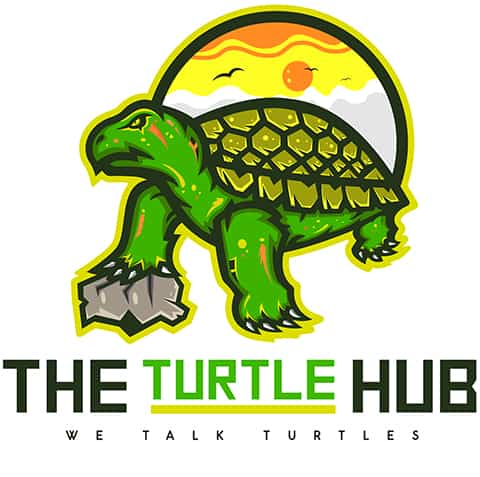Tags:
Can Turtles Eat Fruit? [Safe Fruit List]


fact checked & review by
Dr. Partho Kumar Shaha
Veterinarian (DVM)
The information is current and up-to-date in accordance with the latest veterinarian research.
Pet turtles are omnivores which means they can eat both animal and plant base foods. But can turtles eat fruits?
Turtles can eat fruit. They will bite on any fruit. Fruits contain vitamins and minerals that are beneficial to turtles’ health. However, owners should feed their turtles a moderate amount of fruits. Besides, not all fruits are safe for turtles.
So, you better know which fruits are safe for your turtle and which are not. In this article, I will give a list of safe fruits for turtles. You will also know which fruits are harmful to your precious pet.
What Fruits Can I Feed My Turtle?
Turtles love to eat fruits. In fact, they will choose fruits over vegetables when you offer them both. However, fruits are not as effective as vegetables for turtles. So, feed them some slices of fruit as snacks.
Besides, not all fruits are suitable for turtles. Some fruits can be toxic for your pet turtle. Hence, it is important to know which fruits your turtles can eat. To save you time, I have already done the research.
List of safe fruits for turtles:
| Fruits | How Often | Nutritional Value |
|---|---|---|
| Apples | Regular | Vitamin C and Antioxidants |
| Apricots | Occasional | Vitamin A, C, E, phosphorus and potassium |
| Bananas | Once a week | Potassium. Vitamin C, B-complex |
| Black and Blue Berries | Occasional | Vitamins C, K, calcium, and manganese |
| Cherries | Once a month | Vitamins C, A, and K, potassium, magnesium, and calcium |
| Cranberries | Rare treat | Vitamin C, minerals and antioxidants |
| Coconut | Rare treat | Vitamin A, B6, C, calcium, copper, magnesium, potassium, phosphorus |
| Fig | Occasional | fiber, vitamin A, K, C, B6, potassium, and copper, |
| Grapes | Every other week | Vitamin A, C, E, B-complex, calcium, iron, and phosphorus |
| Guava | Occasional | Antioxidants, vitamin C, A, lycopene, calcium, manganese, and potassium |
| Kiwi | Rare Treat | Vitamin C, antioxidants, potassium |
| Watermelon | Occasional | Vitamins A, B-complex, C, potassium |
| Melons/Cantaloupe | Regular | Vitamin C, A, and calcium |
| Papaya | Regular | Vitamin A and C |
| Nectarines | Occasional | Vitamin A and C |
| Mulberries | Occasional | Vitamin C, B6, iron, magnesium, calcium |
| Peaches | Occasional | Vitamin A, C, K, E |
| Pears | Occasional | Fibre, vitamins C and K, potassium and antioxidants |
| Plums | Occasional | Calcium, magnesium, phosphorus, potassium, vitamin C, vitamin A |
| Pineapples | Rare | Vitamins A, C, and B |
| Strawberries | Regular | Vitamin C, manganese, vitamin B9, and potassium |
| Squash | Occasional | Vitamins A, B1, B6, and C, copper, fiber, folate, and manganese |
| Tomatoes | Regular | Vitamin C, potassium, folate, and vitamin K |
| Pumpkins | Occasional | Vitamins A, B1, B6, and C, copper, fibre, folate, and manganese |
| Mango | Occasional | Fibre, vitamin C, and potassium |
| Oranges | Rare | Vitamin C, calcium, and folate |
What Fruits Turtles Should Not Eat?
Can you feed other fruits not listed on the list? That depends on the type of fruit and what it contains. Hence, you should research which fruits are safe for turtles. Citruses are fruits that you should strictly avoid.
Citrus fruits contain a high level of citric acid. Many turtles cannot handle too much citric acid. Eating citrus fruits can lead to stomachaches and vomiting. Your turtle can get diarrhea and digestive problems.
You should also never feed avocados to your turtle. This fruit might be nutritious for people, but every part of an avocado is toxic to turtles. It contains a fungicidal toxin called persin, which can make your turtle severely ill.
Here is a list of fruits you should not feed your turtles:
- Avocados
- Grapefruits
- Mandarins
- Lemons
- Limes
- Pomelo
Although oranges also contain citric acid, you can occasionally feed some pulps of orange to your turtle to fulfil its need for vitamin C.

How Often Should You Feed Fruits To Your Turtle?
You can add some safe fruits to your turtle’s diet plan, but fruits should not be a large part of their daily food. As you can see, some fruits are for regular treats while others are for occasional treats. This is because feeding fruits too much can negatively affect your turtle.
Fruits should be only 10% of your turtle’s diet. Many fruits contain a high level of phosphorus and sugar, which is bad for a turtle’s health. Instead of feeding fruits to your turtles daily, feed them their favorite fruits once or twice a week.
Yes, turtles need vitamins and other essential food nutrients. They can get their necessary nutrients from protein-based food, vegetables, and commercial supplements.
Feeding excessive fruits can result in too much phosphorous than calcium in a turtle’s body. Calcium is the most important food nutrient for turtles to develop their shell and bones. If the amount of phosphorous is more than calcium, turtles can develop bone diseases.
Therefore, you should be careful about what fruits you feed your turtle and how amount. For example, bananas can provide vitamin C and vitamin B-complex, but it also has phosphorous. You might add some banana slices to the diet for vitamin C, but add other calcium-rich food to the diet.
How to Feed Fruits to Your Turtle?
Turtles do not have any teeth. They have powerful jaws, which they use to crush their food. So, cut the fruits into small pieces to make it easier for the turtles to eat. Also, some parts of fruits, like the seeds, are harmful to the turtles. For example, apple seeds are toxic to turtles.
Here is how you should feed fruits to your turtles:
- Always introduce new fruits in a small amount to your turtles. If they do not show interest right away, do not force them.
- Wash the fruits with clean water. There should be no dirt or chemicals on them.
- The skin of some fruits can constipate a turtle. So, you can peel off fruit skin to make it safer for turtles.
- Many species of turtles are small. They might struggle to eat large pieces of fruit. So, cut the fruits into small pieces to fit into your turtle’s mouth.
- Turtles can eat and digest small seeds of fruits like strawberries, kiwis, grapes, tomatoes, and so on. Some of these seeds are even high in fiber. But the seeds of apples, oranges, and watermelons are hard to digest. So, remove the hard seeds of fruits before feeding your turtle.
- Some turtles dislike eating hard parts of fruits. In that case, offer them only the soft part of the fruits. For instance, remove the ride of watermelon and melons. Then, make small pieces for the turtles.
- Most fruits do not float in the water. Land turtles can eat fruits from a bowl. But aquatic turtle prefers to eat in the water. For them, you can leave the fruits on the land or basking area near the water.
- Feed fruits to your turtle only as treats. Fruits should not be the primary food source. Offer them fruits only after your turtle has eaten their fair share of protein and vegetables.
- After your turtle finishes eating fruits, clean out the rest of the fruit from the tank as soon as possible. Fruits can spoil sooner than you know and contaminate the tank.
What are the benefits of feeding Fruit to turtles?
Turtles need extra vitamins and other nutrients from fruits to live a healthy life. Feeding fresh fruits is important, as they contain different vitamins and nutrients.
Here is how the vitamins and other nutrients found in fruits benefit a turtle’s health:
Vitamin A
Vitamin A is one of the most essential nutrients for turtles. The benefits of eating vitamin A rich fruits are many. It keeps the skin of a turtle healthy and prevents excessive shedding of skin.
Besides, vitamin A helps the eyesight and reproductive health of turtles. Vitamin A can prevent respiratory diseases too. So, you can add some yellow or orange fruits to your turtle’s diet plan.
Vitamin C
Vitamin C from different fruits works as a powerful antioxidant for turtles. Antioxidants help your turtle tolerate stressful situations. Some research says that vitamin C helps to develop turtle shells and bone health.
It is not necessary to feed your turtle citrus fruits for vitamin C. Many fruits have vitamin C with other beneficial nutrients.
Vitamin B6
Like vitamin C, vitamin B6 is helpful for a turtle’s mental health. It keeps the nervous system and immune systems functioning. Vitamin B6 is crucial to keep turtles energetic throughout the day.
You can feed your turtle a few slices of bananas as regular snacks. Berries are a substantial source of vitamin B6 too.
Fibre
The fiber from fruits can keep your turtle’s gut healthy. It prevents constipation and helps to maintain a healthy digestive system. You can feed mangoes and melons to your turtles vocationally as the fruits contain fibre.
Calcium
Calcium is the most important fruit nutrient for turtles. Turtles need calcium to develop their shell and bones. Many fruits contain a bit of calcium with other beneficial vitamins and nutrients.
You can feed your turtle mulberry and guava once a week to provide them calcium along with nutrients like vitamin C and B6.
There are many other benefits of feeding fruits to turtles. Fruits contain a lot of water which can keep your turtle hydrated. In summer, you can feed fruits as treats regularly to turtles, especially the land turtles.

Why Is My Turtle Not Eating Fruits?
You might have been putting some fruits in your turtle’s diet for a while, but your turtle simply avoids eating them. It can happen for many reasons.
First, you must check the eating habits of your turtle. If it is a carnivore, it will not show any interest in eating fruits. Carnivore turtles eat protein-based foods and commercial supplements.
Second, your turtle prefers protein-based foods and vegetables more than fruits. So, it may not eat fruits when other foods are available. Or it does not like the taste of the fruit you give it.
If you want your turtle to eat fruits, try offering only fruits during snack time. Also, change the fruits to figure out which fruits your turtle likes more.
Third, turtles may avoid eating fruits and other fruits when they feel stressed. Turtles in a new environment are afraid to come out of their hiding place and eat. Give them a few days to adjust. When they feel at home, they will eat fruits and other foods.
Can Turtles Eat Grapes?
Grapes are safe for their small size and nutritional value. They are rich in sugar and carbohydrates, which give turtles energy.
Grapes contain nutrients such as vitamins A, B, C, and E. By feeding grapes, you can also provide calcium and iron. The antioxidants in grapes also help to prevent cell damage.
Since grapes have phosphorus, offer some grapes to your turtle every other week. Some turtles may like the taste, but others may not. So, never force them to eat fruits.
Turtles can eat small grapes, but you can cut grapes into small pieces for small turtles. Remove the seeds of grapes if they are hard for turtles to digest.
Can Turtles Eat Strawberries?
A little strawberry once in a while will not hurt your turtle. Strawberries contain vitamins A and C. Both are important nutrients for maintaining the immunity system.
But do not feed too many strawberries as they contain lots of sugar.
Also, wash the fruits properly to remove pesticides. You can hand-feed strawberries to your turtle to make a bond. If your turtle is too shy, leave strawberries in the enclosure.
Can Turtles Eat Watermelon?
Although turtles in the wild do not eat watermelons, experts say it is okay to add watermelon to your pet turtle’s diet. In summer, you can feed watermelons to your turtles as a regular snack. It will help to keep turtles hydrated.
Watermelon also has nutrients such as vitamins A, C, B-complex, and potassium. These nutrients boost the immunity system of turtles.
Most turtles prefer ripe watermelons. So, feed them pieces of watermelon removing the rind part and seeds. Watermelon seeds are hard for turtles to digest.
Can Turtles Eat Apples?
Apples are one of the favorite fruits among omnivore turtles.
Apples are an excellent source of vitamin C and antioxidants.
These nutrients keep the digestive system of turtles healthy. You can feed apples to your turtles daily but in small proportion since it contains phosphorus.
Try not to feed apples that were produced using pesticides or chemicals. It is better to give your turtles organic apples. Wash the apples properly before cutting them. Remove the seeds and then feed them to your turtles.

Can Turtles Eat Bananas?
Turtles love to eat bananas for their sweet taste. However, it is better not to feed bananas daily because of the high level of sugar and phosphorus in them. You can give bananas as treats once a week. It is a great source of dietary potassium.
It also contains vitamin C and B-complex. Thus, bananas can keep your turtle’s immunity system strong.
You can chop the bananas without peeling the skin. Then give a few banana pieces to your turtle to eat. Do not feed bananas too much, as it can increase the sugar level in turtles.
Can Turtles Eat Blueberries?
Turtles enjoy the sweet taste of blueberries. But you should not give blueberries to your turtles on a regular diet. Provide a moderate number of blueberries once in a while as special treats to make your turtles happy.
Besides the delicious taste, blueberries have antioxidants that help to keep turtles stress free. It is also effective against cancer and cardiovascular disease among turtles.
Remember to peel off the skin from blueberries before feeding it to your turtle. Blueberry skin can constipate turtles. You can also remove the seed to make it easier for turtles to eat the fruit.
Can Turtles Eat Orange?
Many people feed oranges to their turtles, though citrus fruits can be dangerous for turtles. But it is not completely safe for turtles.
If you want your turtle to taste the sweet and sour taste of an orange, you can do that, but give a moderate amount of orange pulps.
Too much citric acid can cause digestive problems, and your turtle might vomit too.
Oranges are a source of vitamin C and calcium. Both nutrients are essential for your turtle’s health.
But you can provide these nutrients by feeding other safer fruits that contain no citric acid.
So, it is better to avoid feeding oranges to turtles. But if your turtle love oranges, let it eat oranges as a rare treat once in a while. Remove the orange peel and seed before offering it to the turtles. Feed your turtles only the soft pulps.
Conclusion
So, can Turtles Eat Fruit? As you can see, all omnivore turtles like fruits. You can feed your precious turtle different fresh fruits. But before letting them eat fruits, make sure the fruits are safe for your turtle. You will find many fruits listed above that are proven safe for turtles.
Remember to choose fruits based on nutritious value instead of their taste. Always observe your turtle’s behavior after it eats a new fruit. Also, you should never force your turtle to eat fruits.

About Author
Muntaseer Rahman started keeping pet turtles back in 2013. He also owns the largest Turtle & Tortoise Facebook community in Bangladesh. These days he is mostly active on Facebook.
Disclaimer
This site is owned and operated by Muntaseer Rahman. TheTurtleHub.com is a participant in the Amazon Services LLC Associates Program, an affiliate advertising program designed to provide a means for sites to earn advertising fees by advertising and linking to Amazon.com. This site also participates in other affiliate programs and is compensated for referring traffic and business to these companies.






